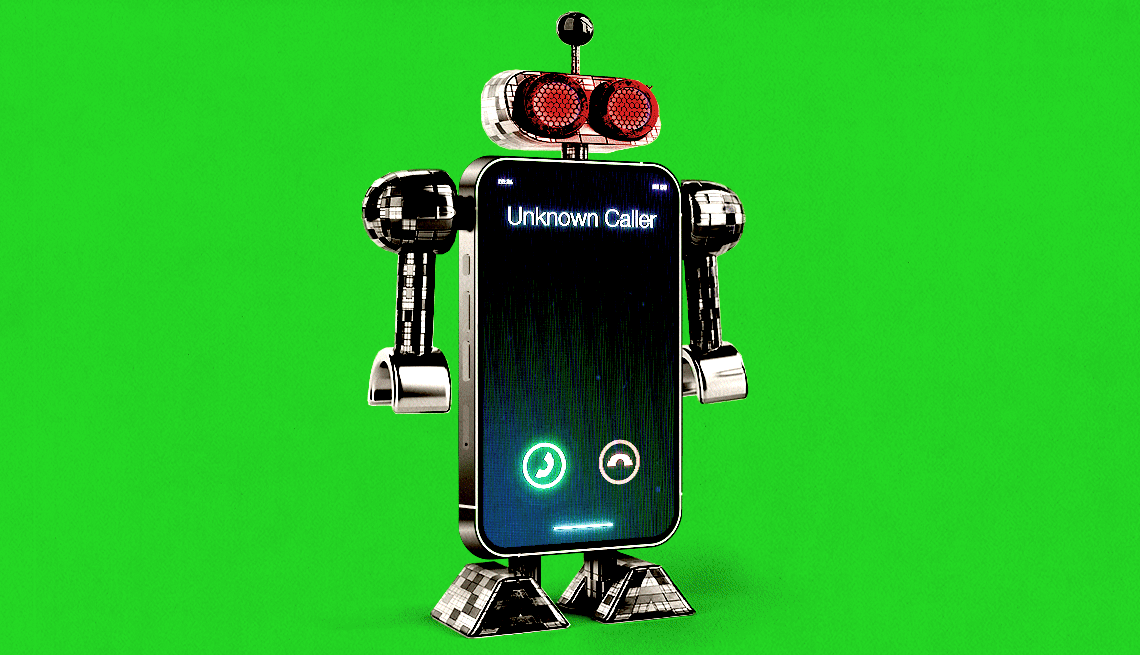
How you can stop illegal robocalls
- Select a language for the TTS:
- UK English Female
- UK English Male
- US English Female
- US English Male
- Australian Female
- Australian Male
- Language selected: (auto detect) - EN
Play all audios:

BANK PROBLEMS. Criminals pretend to be from your bank and tell you there’s a problem with your account or there’s been a data breach. Hang up and call from a number you independently verify.
The banks are very happy to have you do that, Quilici says. (Listen to more of his advice on _The Perfect Scam_.) PUBLIC PROGRAMS. Issues such as student loans are ripe for robocall scams
as it’s not clear whether loans are forgiven or not. “Criminals love confusion,” says Clayton LiaBraaten, senior strategic adviser at Truecaller, a global caller ID, spam blocking and fraud
prevention app. WHAT CAN BE DONE TO STOP ROBOCALLS? Truecaller estimates that Americans lose $25 billion annually to scams originating with spam calls. The FCC, Federal Trade Commission
(FTC) and the telecom industry work to prevent criminals from dialing up citizens, but “it’s really a game of whack-a-mole,” LiaBraaten says. STIR/SHAKEN authentication and Operation Stop
Scam Calls — led by the FTC in partnership with more than 100 federal and state law enforcement agencies — targeted operations responsible for billions of calls and shut them down. Bercu
points out that auto warranty scams, which he calls one of the most pervasive robocall campaigns in this country, have virtually gone away. “That is a signal that the tools and the framework
we have can be effective.” AI IS THE NEXT BIG THREAT AI creates synthetic voices that may do the initial talking. Using information from data breaches and what you’ve shared on social
media, criminals can create a conversational bot tailored to you. “I know what your alma mater was. I know where you live. I know who you hang out with. I know what you spend money on. It’s
not very difficult for a social engineer to write a script,” LiaBraaten says. Though the FCC outlawed robocalls made with AI, scammers persist with calls impersonating Medicare, Social
Security, the IRS and other government agencies . (Learn more about AI and scams here.) Using audio from voicemail messages or clips on social media, AI can mimic your loved ones’ voices,
making so-called grandparent scams (callers impersonating grandchildren in distress) more effective. “It doesn’t have to be a perfect voice clone, (it) just has to be good enough,” says
Quilici, who created a password his family can use to verify if help really is needed. HOW TO PROTECT YOURSELF FROM ROBOCALL SCAMS BE VIGILANT. “Be patient, be protected, and be suspicious.
And that’ll go a long way,” Quilici says. DON’T ANSWER CALLS FROM UNKNOWN NUMBERS. “If I’m not expecting a call and it’s not a contact, I’m just going to ignore it, let it go to voicemail
and then deal with it afterward,” Quilici says. It’s a good idea to put your doctor and other regular callers in your phone’s contacts, so you’ll recognize them when they call. IF YOU DO
ANSWER, AVOID ENGAGING. It’s best not to speak or press any keys in response to a prerecorded message. Taking action signals to scammers that it’s a live number, and they’ll target you with
more spam calls. IF YOU START TO ENGAGE, STOP AND SAY YOU’LL CALL THEM BACK. Criminals want to keep you on the phone — that’s when they wear down your resolve, LiaBraaten says — and if they
spoofed the number, “they’re not too keen on being called back.”
